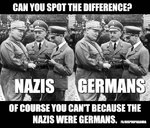At May, 20th, 75 years ago, German Nazis brought to the newly built Auschwitz concentration camp a group of 728 Polish political prisoners from the prison in Tarnów. This date is considered to be the day when the camp began to operate.
It is estimated that around 75,000 Polish political prisoners were murdered in Auschwitz by the Germans. On the whole, during WW2, the Germans murdered around six million Polish citizens, half of which were Jewish and the other half were Catholic.
Today we are witnessing the rewriting of history, as the victims, namely the Polish people, are being blamed for the Nazi crimes which were perpetrated by the German people during WW2.
US president Barack Obama called the German built concentration camps on Polish soil "Polish death camps", while the head of the FBI Blamed Poles and other nationalities for the crimes of the Nazis.
In Europe the French President, François Hollande, called the German people "victims of the Nazis", and very recently the German parliament thanked the allies for "liberating" Germany from the Nazis.
Here's a reminder of just who exactly the Nazis were.
It is estimated that around 75,000 Polish political prisoners were murdered in Auschwitz by the Germans. On the whole, during WW2, the Germans murdered around six million Polish citizens, half of which were Jewish and the other half were Catholic.
Today we are witnessing the rewriting of history, as the victims, namely the Polish people, are being blamed for the Nazi crimes which were perpetrated by the German people during WW2.
US president Barack Obama called the German built concentration camps on Polish soil "Polish death camps", while the head of the FBI Blamed Poles and other nationalities for the crimes of the Nazis.
In Europe the French President, François Hollande, called the German people "victims of the Nazis", and very recently the German parliament thanked the allies for "liberating" Germany from the Nazis.
Here's a reminder of just who exactly the Nazis were.

